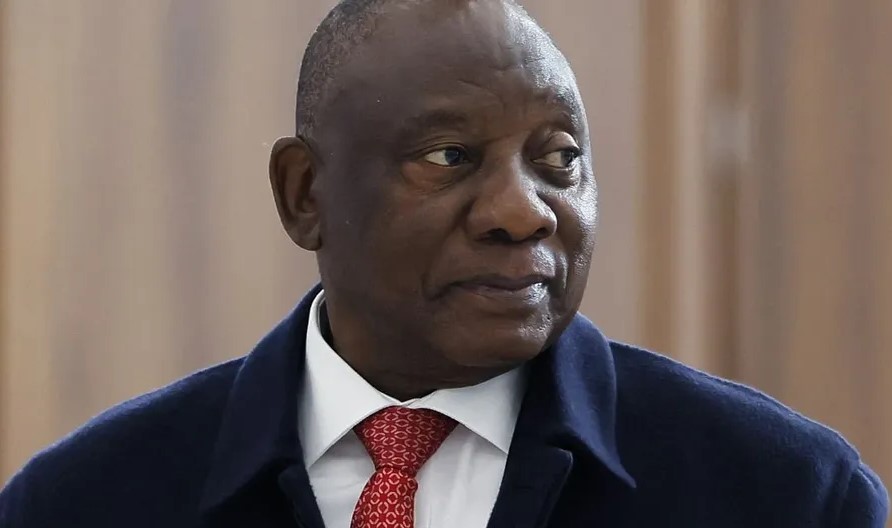Can Ramaphosa’s Negotiation Skills Win Over Trump Amid Rising Tensions?
3 min read
Ramaphosa seeks to mend US ties and secure trade amid rising diplomatic tensions.

Ramaphosa seeks to mend US ties and secure trade amid rising diplomatic tensions.
South African President Cyril Ramaphosa is no stranger to difficult negotiations. As the chief negotiator for Nelson Mandela’s African National Congress (ANC) during the country’s transition from apartheid to democracy, he played a pivotal role in shaping modern South Africa. Now, he faces a different but equally complex challenge: repairing fractured relations with the United States under President Donald Trump.
Ramaphosa has traveled to Washington, D.C., aiming to reset the strained relationship and secure a favorable trade deal. At the center of discussions is the African Growth and Opportunity Act (Agoa), a key piece of U.S. legislation that provides duty-free access to American markets for select African exports. South Africa, one of the program’s biggest beneficiaries, earned around $2.7 billion in 2023 through exports such as vehicles, minerals, and jewelry. However, the agreement is up for review later this year, and there are concerns that South Africa may be excluded from any extension due to ongoing political tensions.
The trip comes after months of diplomatic strain between the two countries. Trump has publicly criticized South Africa’s land reform policies, particularly a law allowing for the expropriation of land without compensation in cases deemed to be in the public interest. The policy has sparked accusations from Trump and his close adviser, Elon Musk, that the Afrikaner community is facing a “white genocide”—a claim that has been widely discredited but continues to fuel tensions.
In response, the U.S. suspended aid to South Africa and offered resettlement assistance to members of the Afrikaner community. Matters escalated further when South Africa’s ambassador to Washington, Ebrahim Rasool, was expelled after accusing Trump of promoting white supremacist narratives. The U.S. Secretary of State, Marco Rubio, called Rasool a “race-baiting politician” and declared him unwelcome.
Despite these challenges, Ramaphosa remains committed to restoring ties. “We want to come out of the United States with a really good trade deal,” he said. “We want to strengthen those relations and consolidate good relations between our two countries.” His delegation, which includes four senior cabinet members, has had limited time to prepare a formal program but is focused on trade and long-term diplomatic normalization.
One notable member of the delegation is Agriculture Minister John Steenhuisen, from the Democratic Alliance, a coalition partner that has criticized the ANC’s empowerment policies. While potentially controversial, Steenhuisen’s presence could offer a broader political perspective during the negotiations.
Complicating the talks further is South Africa’s ongoing legal case against Israel at the International Court of Justice, where it has accused Israel of committing genocide in Gaza—an allegation Israel denies. The case has angered the U.S. administration and added to the strain between Pretoria and Washington.
Ramaphosa’s spokesperson, Vincent Magwenya, acknowledged that the case may lead to a “robust discussion,” but emphasized areas of mutual concern such as the humanitarian crisis in Gaza. Trump recently acknowledged that “a lot of people are starving” in the region, which has led to a limited flow of aid being allowed into the territory. This common ground may offer a path forward.
South African analysts describe the meeting as a “high-risk” but potentially high-reward engagement. Political analyst Anthoni van Nieuwkerk warns that if Trump focuses on emotional issues like white genocide claims, the meeting could quickly deteriorate. However, if both sides come prepared and focus on mutual interests, there is potential for a diplomatic breakthrough.
Van Nieuwkerk and other experts believe Ramaphosa’s calm demeanor and strong negotiation background could be decisive. Known for his ability to read the room and strike deals, Ramaphosa has already invited Trump for a friendly golf match at the G20 Summit in South Africa later this year—possibly using personal charm to ease tensions.
“This meeting is not about begging,” said Magwenya. “The U.S. needs South Africa’s resources and strategic position just as much as we need access to their market.”
While the outcome remains uncertain, both sides have much to gain from a renewed partnership. For South Africa, it’s a chance to stabilize trade relations and reaffirm sovereignty. For the U.S., it’s an opportunity to maintain influence in Africa amidst growing global competition.
Whatever the result, Ramaphosa’s Oval Office visit marks the beginning of a critical diplomatic process